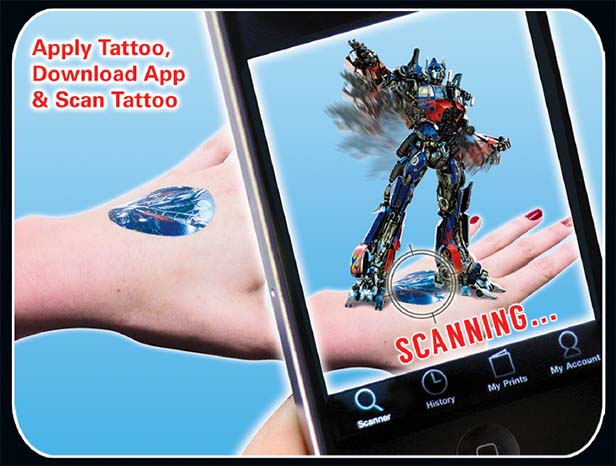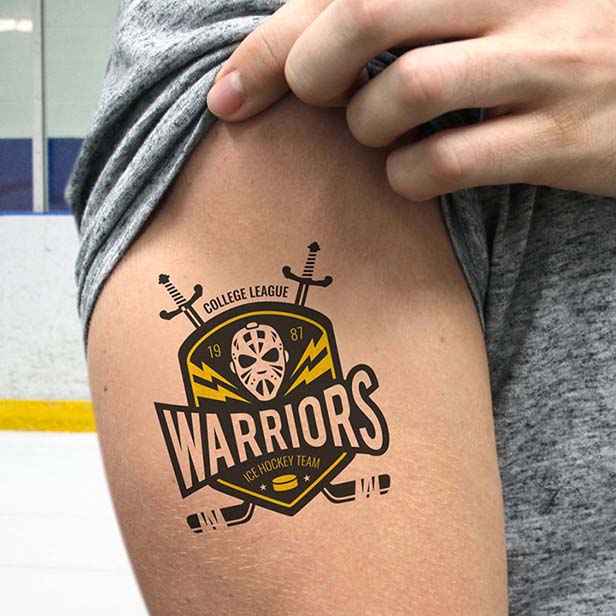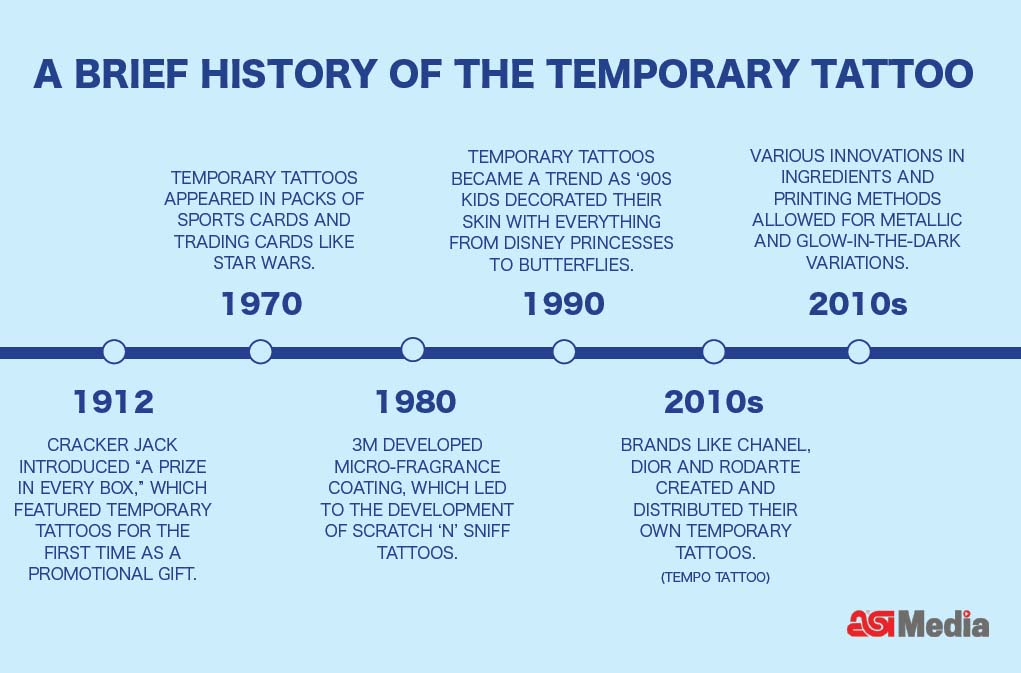June 29, 2023
Temporary Tattoos Evolve With QR Codes & Augmented Reality
Suppliers offer ways to interactively engage consumers through unique temporary-tattoo options.
Temporary tattoos are an undeniably fun promo product, giving brands an unexpected way to showcase their logos.
“Tattoos are a walking, talking billboard,” says Stephen Bloom, president of Tattoo Promotion Factory (asi/90650). “It’s one of the very unique items in the industry.”
Summertime – when many people’s arms and legs are bare – is a popular season for temporary tattoos, whether it’s to raise awareness for a nonprofit, build excitement for a music festival or create solidarity at a corporate event.
“You can always attach tattoos to something that somebody’s really proud of, or they want to show, or they want to give awareness to,” says Mitchell Ber, reseller manager at Sticker You (asi/89791).
Thanks to some high-tech innovation, the modern promo tattoo has evolved beyond mere decoration: It can now create functional, interactive brand experiences. For instance, Tattoo Promotion Factory has incorporated augmented reality (AR) into temporary tattoos.

Tattoo Promotion Factory can work with distributors to create an augmented reality tattoo that brings the temporary tattoo to life.
AR temporary tattoos can literally jump off people’s skin: Users download an app on their smartphone, scan the tattoo and watch it come to life. Tattoo Promotion Factory has created an interactive Star Wars tattoo with a stormtrooper that, when scanned, peels off the wearer’s skin and moves around the phone screen.
The temporary tattoo itself is no different than the supplier’s standard tattoo, but what Bloom calls the “experience” costs thousands of dollars. Tattoo Promotion Factory can recommend several outside companies to provide the AR technology while it manufactures the tattoo; so far, however, the supplier has only had a handful of buyers dedicate resources to this large production process, according to Bloom.
“It’s not for everybody, because it’s like developing a TV commercial or a website – it can cost anywhere from $10,000 to $50,000 to develop,” Bloom says. “It’s a big, involved thing; it’s not for the person that’s doing a minimum order, which most of these orders are.”
On the more practical side, temporary tattoos can be used to convey essential information at numerous events. Race organizers, for example, might order number tattoos for participants to provide extra identification alongside flimsy paper race bibs.

Sticker You produces temporary tattoos for a variety of markets, including sports teams, businesses and nonprofits.
Another idea is to add a QR code to a temporary tattoo; it can send scanners to an event map, fundraising page or other informational source. “When you’re at an event and you’re trying to raise money, they scan the QR code of the tattoo; that way they always have it, and it’s a quick way to link your call to action,” says Mitchell Ber.
Distributors looking for an alternative to the traditional temporary tattoo could also consider a product like promotional eye black strips. The benefit is that they don’t require water to apply and the image quality doesn’t fade after being on the skin for hours, says Peter Beveridge, CEO of Eye Black (asi/53428).

Fans sport Eye Black strips to show team spirit while reducing glare from the sun.
Eye black strips are designed to reduce sun glare for athletes, but anything that’s popular on the playing field tends to become coveted by spectators, too – which helped the strips evolve into a promotional item, Beveridge explains.
“The beauty of the product is that it’s eye black, so it’s meant as an athletic product, but when used by fans it gives them that same ability to think of themselves as part of the team and endorse whatever that particular marketing idea is,” he adds.
A range of companies, from large brands like Budweiser and AT&T to mom-and-pop shops, have added their logo to eye black strips. Just like temporary tattoos, eye black serves as a unique promotional product that’s relatively inexpensive.
Temporary tattoos and eye black both offer an interactive promotional experience that allows brands to showcase their company in a memorable way.
“The more creative and the more vision the distributor has for the tattoo, the more successful it is,” Ber says.
